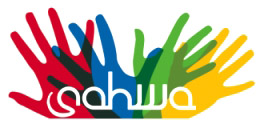Conferences and debates
Index / Activities / Conferences and debates / Women and Youths Three Years After the Arab Spring
Women and Youths Three Years After the Arab Spring
From February 17, 2014 until February 24, 2014
Conference given by Hania Sholkamy and Larabi JaidiFebruary 12, 2014 - MADRID
Three years after the popular uprising in Tunisia which rapidly spread to Egypt, Yemen, Libya and other Arab countries, revolutionary demands like “Bread, Freedom and Social Justice” are just as current as ever. Youths and women, the main role-players is what is now called the Arab Spring, remain marginalized from decision-making for the most part. In Egypt, the military has once again taken over as the main role in the transition, while in Tunisia, despite the approval of the constitution after many months of negotiations, few see any real changes in their everyday lives. However, the emergence and dynamic energy of youths and women as new social and political role-players are undeniable. Within this context, how is the role of the female population perceived, and in particular, that of the 30% of the population made up of young people between the ages of 18 and 30 forming part of the SAHWA Project?
This conference will be given by Hania Sholkamy, a professor at the Social Research Center of the American University in Cairo (AUC), Egypt, and Larabi Jaidi, a professor of Economics at the Université Mohamed V-Agdal in Rabat, Morocco. Moderating the conference will be Karim Hauser, responsible for Governance at Casa Árabe and Eduard Soler, the Research Coordinator of the CIDOB.
This event will take place on the date of February 12, 2014 at Casa Árabe’s headquarters in Madrid (at Calle Alcalá, 62) at 7:00 p.m. The conference will be given in Arabic, with simultaneous translation into Spanish. Free entry until the event’s capacity is reached.
Hania Sholkamy
A professor of the Social Research Center at the American University in Cairo (AUC), Egypt, Ms. Sholkamy earned her doctorate in Social Anthropology at the London School of Economics. Her research and publications have focused above all on the subjects of demographics, gender, reproductive health and quantitative methods. She is currently the regional coordinator for Arab countries of the “Consortium of Research on Women’s Empowerment” in association with the Institute of Development Studies at the University of Sussex in the United Kingdom. She also forms part of the executive committee of the Institute of Gender and Women’s Studies at the AUC, while also a researcher for the Economic Research Forum and a professor at the Arab Gulf University of Bahrain.
Larabi Jaidi
A professor of Economics at the Université Mohamed V-Agdal in Rabat, Morocco, Mr. Jaidi is the Director of the Master’s degree program in Territorial Development at that university, and the General Director of the CREADH (Center for Research on Applied Economics and Human Development). A member of the executive committee of the Abderrahim Bouabid Foundation, a founding member of the Groupement d’Etudes et Recherches sur la Méditerranée (GERM) and the Centre Marocain de Conjoncture (CMC). In 2013, he directed the Maghreb Forum of Youths on youth participation in local politics, within the framework of the DAWRAK (Citizens for Dialogue) Program of the Anna Lindh Foundation for Dialogue Between Cultures. He has had many works published on topics such as employment, poverty, gender and Euro-Mediterranean relations.
The SAHWA Project (“Empowering Arab Youths: Towards a New Social Contract”) is a collaborative, interdisciplinary research project financed by the European Commission as part of the FP-7 Research Framework Program. It is led by CIDOB and relies on another fourteen partners, universities and research institutes in Europe and the South and East Mediterranean (including the Haute École de Management in Rabat, CREAD in Algeria, CAWTAR in Tunisia, the American University in Cairo, Egypt and the Lebanese American University in Lebanon, as well as the University of Lleida in Spain). The project will last for another three years (2014-2016) and attempts to analyze the trends and perspectives of youths within a context of demographic, political and economic transition in the Arab Mediterranean countries.
Organized by:



